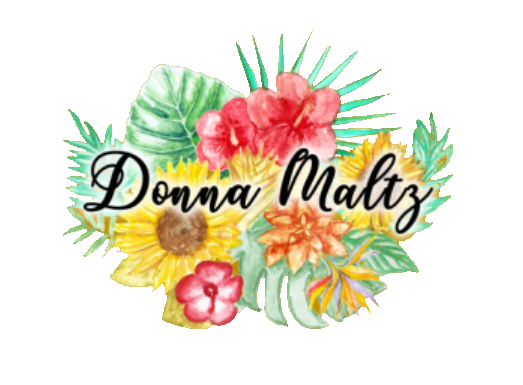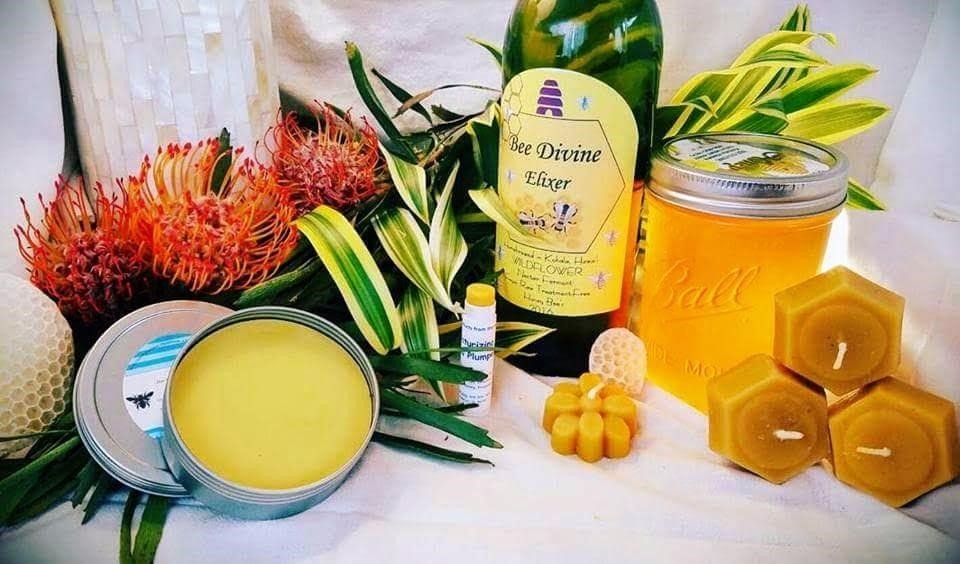The Vital Importance of Bees and How We Can Save Them
Aloha Beautiful Souls,
Hey there, fellow Earthling! Have you ever stopped to marvel at the intricate dance of bees flitting from flower to flower, pollinating our plants, and ensuring the continuation of life as we know it? If not, it's time to start, because these tiny creatures are not just fascinating—they're absolutely crucial to our existence. So, grab a cup of tea (sweetened with honey, of course!), and let's delve into the wonderful world of bees.
A Brief History of Bees and Beekeeping
To truly appreciate the significance of bees, we have to take a trip back in time. Bees have fascinated humans for millennia. Ancient civilizations, such as the Egyptians and Greeks, revered bees for their industriousness and honey-producing abilities. Early beekeepers kept hives made from clay or woven straw, methods that have evolved into the modern beekeeping practices we see today.
Fast forward to the 21st century, and beekeeping has become both an art and a science. Beekeepers, also known as apiarists, carefully tend to their colonies, ensuring their health and productivity. From backyard hobbyists to large-scale commercial operations, beekeeping plays a vital role in agriculture and ecosystem preservation.
The Crucial Role of Bees in Healing Our Planet and Ourselves
Now, let's discuss why bees are so important. It all boils down to one word: pollination. Bees, along with other pollinators like butterflies and birds, facilitate the reproduction of flowering plants by transferring pollen from one flower to another. This process is essential for the production of fruits, vegetables, nuts, and seeds—many of the foods we rely on for sustenance.
But it doesn't stop there. The benefits of bees extend far beyond the dinner table. Pollination contributes to biodiversity, supporting ecosystems around the globe. Without bees, many plant species would struggle to reproduce, leading to a domino effect that could disrupt entire ecosystems.
On a more personal level, bees provide us with honey—a natural sweetener that's not only delicious but also boasts an array of health benefits. From soothing sore throats to boosting energy levels, honey has been used for centuries as a natural remedy for various ailments.
Where Would We Be Without These Outstanding Pollinators?
Now, let's address the million-dollar question: Where would we be without bees? Frankly, we'd be in big trouble. The decline of bee populations, a phenomenon known as colony collapse disorder, poses a significant threat to global food security and biodiversity. Without bees, many of the crops we rely on would fail to produce fruit, leading to food shortages and economic instability.
What Can We Do to Support the Bees and Bee Stewards?
The good news is that we can all play a role in saving the bees! Here are a few simple actions you can take to support these vital pollinators:
🐝Plant Bee-Friendly Gardens: Fill your yard or balcony with bee-attracting flowers such as lavender, sunflowers, and wildflowers.
🐝Providing bees with a diverse range of nectar and pollen sources helps support their health and longevity.
🐝 Avoid Pesticides: Chemical pesticides can harm bees and other pollinators. Whenever possible, opt for organic pest control methods or choose bee-safe alternatives.
🐝 Support Local Beekeepers: Purchase honey and other bee products from local beekeepers who practice sustainable and ethical beekeeping methods. By supporting small-scale beekeepers, you're investing in the future of beekeeping and biodiversity.
🐝 Educate Others: Spread awareness about the importance of bees and the threats they face. Whether it's through social media, community events, or conversations with friends and family, every voice matters in the fight to save the bees.
How Do We Know We Are Purchasing Good Honey?
When it comes to buying honey, quality matters. Here are a few tips for ensuring you're getting the real deal:
🐝Check the Label: Look for honey that's labeled as raw, unfiltered, or organic. These varieties are less likely to be processed or adulterated with additives.
🐝 Read the Ingredients: Pure honey should have only one ingredient: honey. Avoid products that contain added sugars or artificial flavors.
🐝 Support Local Beekeepers: Buying honey directly from local beekeepers is not only a great way to ensure quality but also supports your community's beekeeping industry.
🐝 Do Your Research: If you're unsure about a particular brand or product, do some research online or ask the producer directly about their beekeeping practices and honey production methods.
Why Are Bees in Danger and How Will This Impact Our Food System and Life on This Planet?
Bee populations are declining because of a combination of factors, including habitat loss, pesticide exposure, climate change, and disease. These threats have led to widespread bee die-offs and colony collapses, putting immense pressure on both wild and managed bee populations.
The consequences of declining bee populations are far-reaching. Besides threatening global food security, the loss of bees could have profound ecological and economic impacts. Without bees, many plant species would struggle to reproduce, leading to declines in biodiversity and ecosystem stability.
But here's the good news: It's not too late to save the bees! By taking action to protect and support these vital pollinators, we can make a real difference in their survival and the health of our planet.
So, let's roll up our sleeves and get to work. Whether it's planting a bee-friendly garden, supporting local beekeepers, or advocating for policies that protect pollinators, every action counts. Together, we can ensure a future where bees continue to thrive, pollinating our crops and enriching our lives for generations to come. Buzz on, my friends! 🐝💚
The incredible array of products that bees bless us with!
Beyond the golden nectar of honey, bees provide us with a treasure trove of goodies that not only tantalize our taste buds but also offer a myriad of health benefits. Take propolis, for example—a resinous substance that bees collect from tree buds and use to seal their hives. Propolis is renowned for its antibacterial, antiviral, and anti-inflammatory properties, making it a popular ingredient in natural health remedies and skincare products.
Then there's beeswax, the building block of bees' intricate honeycombs. This versatile substance has been used for centuries to craft candles, cosmetics, and even furniture polish. Beeswax candles not only emit a warm, soothing glow but also purify the air by releasing negative ions, creating a healthier indoor environment.
And let's not forget about mead—the ancient beverage of fermented honey and water. Often referred to as the "nectar of the gods," mead has enjoyed a resurgence in popularity in recent years, thanks to its unique flavor profile and rich history. Whether you prefer it dry or sweet, still or sparkling, mead offers a delightful alternative to traditional alcoholic beverages.
But the wonders of bees don't stop there. Bee pollen, royal jelly, and bee venom are just a few more examples of the remarkable substances that bees produce. From boosting immunity to promoting collagen production, these bee-derived products offer a wide range of health benefits that cultures around the world have cherished for centuries.
So, the next time you enjoy a spoonful of honey or light a beeswax candle, take a moment to appreciate the incredible journey that these products have taken—from the buzzing hive to your home. And remember, by supporting beekeepers and choosing products that prioritize sustainability and ethical practices, you're not just indulging in a sweet treat—you're helping to ensure the continued well-being of our precious pollinators. Buzz-worthy indeed! 🍯🐝








